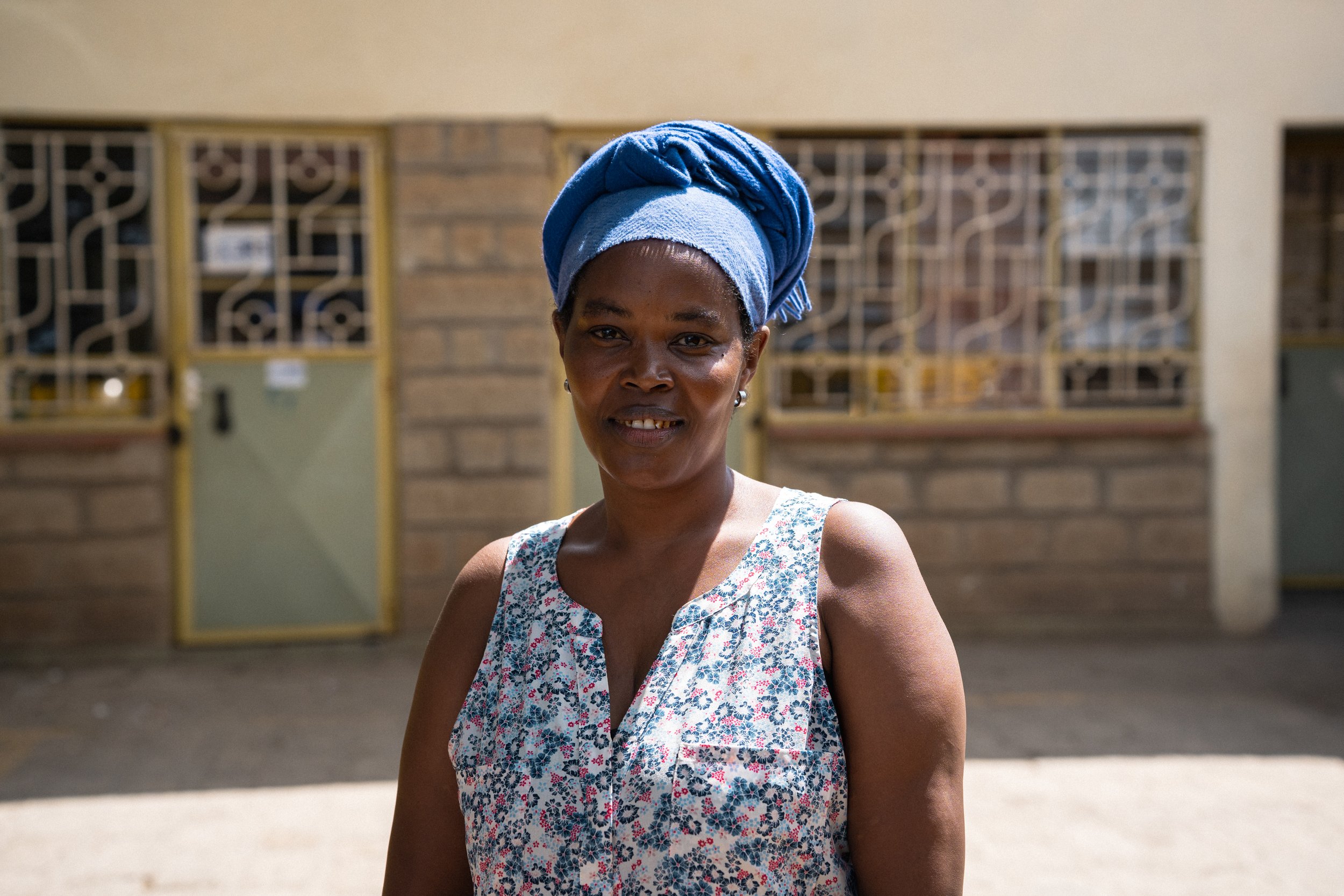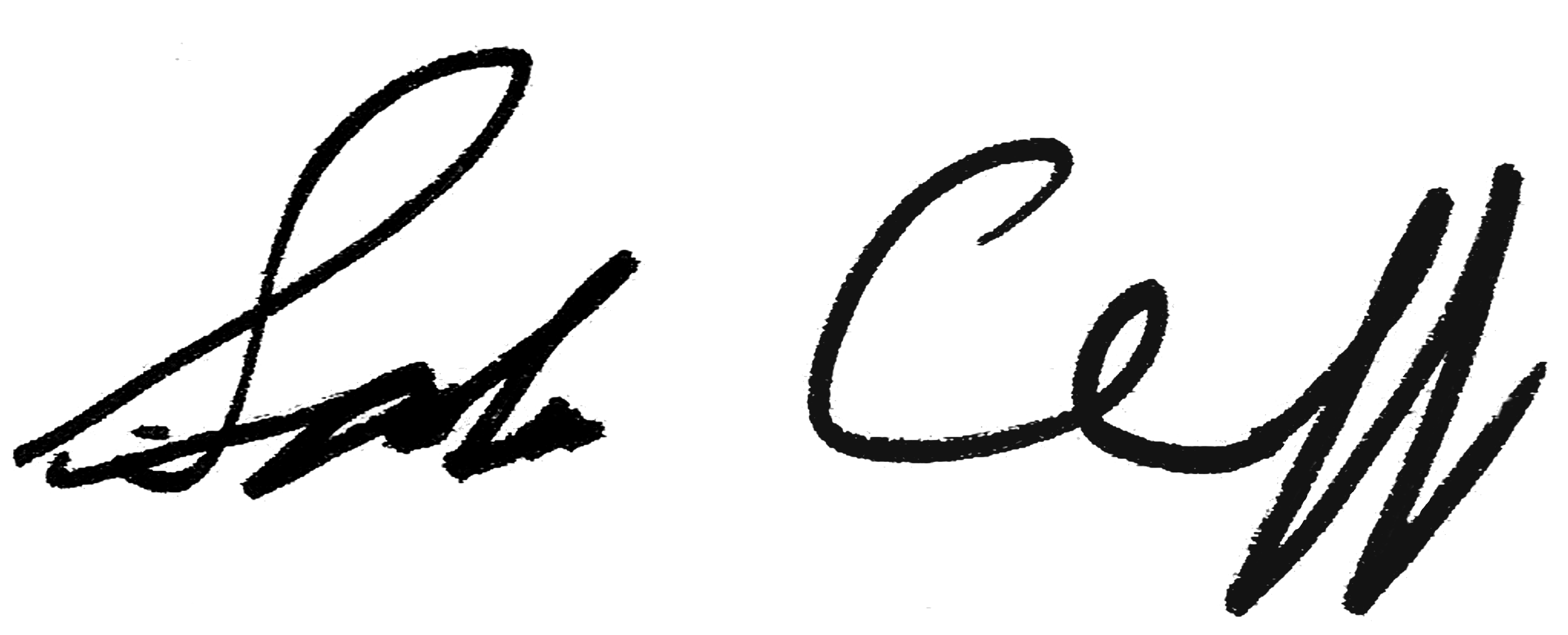
2021 Annual Report

We envision a world where all refugees are able to live healthy and dignified lives.
We work to make this vision a reality by helping refugees to become self-reliant, or to relocate to a new country where they can live safely. Both these pillars of work focus on a single outcome: a solution that enables a person to thrive and lead a dignified life.
We have a distinct approach. We develop innovative programs, demonstrate that they work, and scale them. We call this our AIDE framework through which we drive large-scale change:
-

Assess
We identify gaps in humanitarian response and then assess opportunities to build new programs to address them.
-

Innovate
We create innovative programs in partnership with refugees that lead to lasting solutions for them.
-

Demonstrate
We test and evaluate these programs to ensure that they are effective.
-

Elevate
Once we have confidence in our programs, we scale them to reach refugees around the world. We do this by training partners, building coalitions, and influencing policy and practice to drive systems change.
Message from Farah Mohamed, Board Director
Farah Mohamed, RefugePoint Board Director
I suspect that if you asked my colleagues on the Board, they would agree that it is both the heart and head of RefugePoint that inspire us.
There is a moral urgency to our work, a sense of righting an unimaginable wrong and a commitment to place refugees at the center of our dialogue and decision making. We listen and we learn from their lived experience so that RefugePoint’s policies and programs reflect reality. That’s the heart piece.
Creating programs and solutions that lead to self-reliance and relocation to safety is the head piece. Successful programs and solutions are then embedded into global response systems. This leads to impact far beyond the scope of RefugePoint’s direct operations.
Together, the Board and the team work in service to refugees. This resonates with me – as a Member of the Board and as someone who sought refuge from Uganda to Canada 50 years ago.
If I had one wish it would be that the world would not produce refugees, but since this is unlikely, my hope is that one day, we are living in a world where refugees everywhere have access to a life that is underpinned by dignity and opportunity. I’m proud to be a small part of an organization that will help make this wish a reality.
Sasha Chanoff, RefugePoint’s CEO
Message from Sasha Chanoff, RefugePoint’s CEO:
In the face of unprecedented forced displacement, our distinct approach to refugee response is making an important difference in the world. We are pleased to share in this report what we did in 2021 to bring our vision to life. The words of our Board Director, Farah Mohamed, capture the essence of who we are.
-
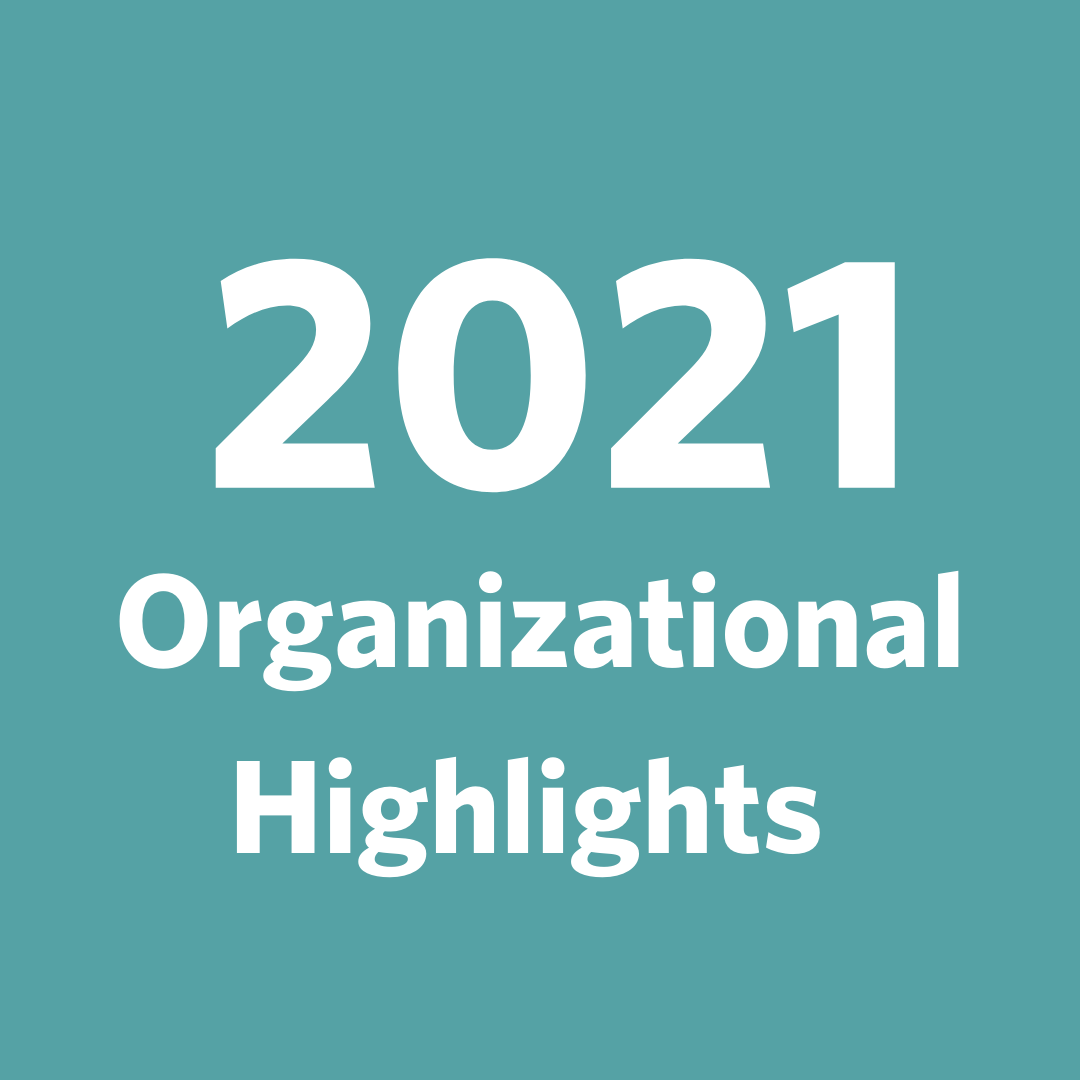
In 2021, a focus on becoming a more refugee-centered, anti-racist, and anti-colonialist organization was at the core of all of our work.
-
Becoming a more Refugee-Centered organization
Recognizing the importance of creating spaces for the voices of refugees to guide our work, we took many steps in 2021 to become a more refugee-centered organization. Our Urban Refugee Protection Program (URPP) staff in Nairobi, Kenya, completed a four-part training curriculum in trauma-informed care, which will help to strengthen RefugePoint’s ability to deliver impactful, refugee-centered programming. We also established an Accountability and Oversight Committee, with majority refugee representation, to help us gather refugee views about programs and feedback regarding approaches that will leave lasting impacts on the community.
-
Advancing our anti-racism/anti-colonialism work
In 2021, in partnership with a social justice organization called World Trust, RefugePoint undertook a participatory assessment of our organizational culture to better understand where and how we can improve our anti-racism/anti-colonialist systems, processes, behaviors, and practices. A Guiding Council with agency-wide representation anchored the assessment process. World Trust also hosted three Learning Laboratories with the following themes: The Roots of Social Justice: Framing and Analysis of Systems and Structures; Introduction to Strategic Questioning: A Strategy for Learning and Change; and Building Racial Equity/Transforming White Culture. The results of these exercises are still being analyzed, and our learnings will help us deepen our commitments to being anti-racist and anti-colonialist in thoughtful and authentic ways.
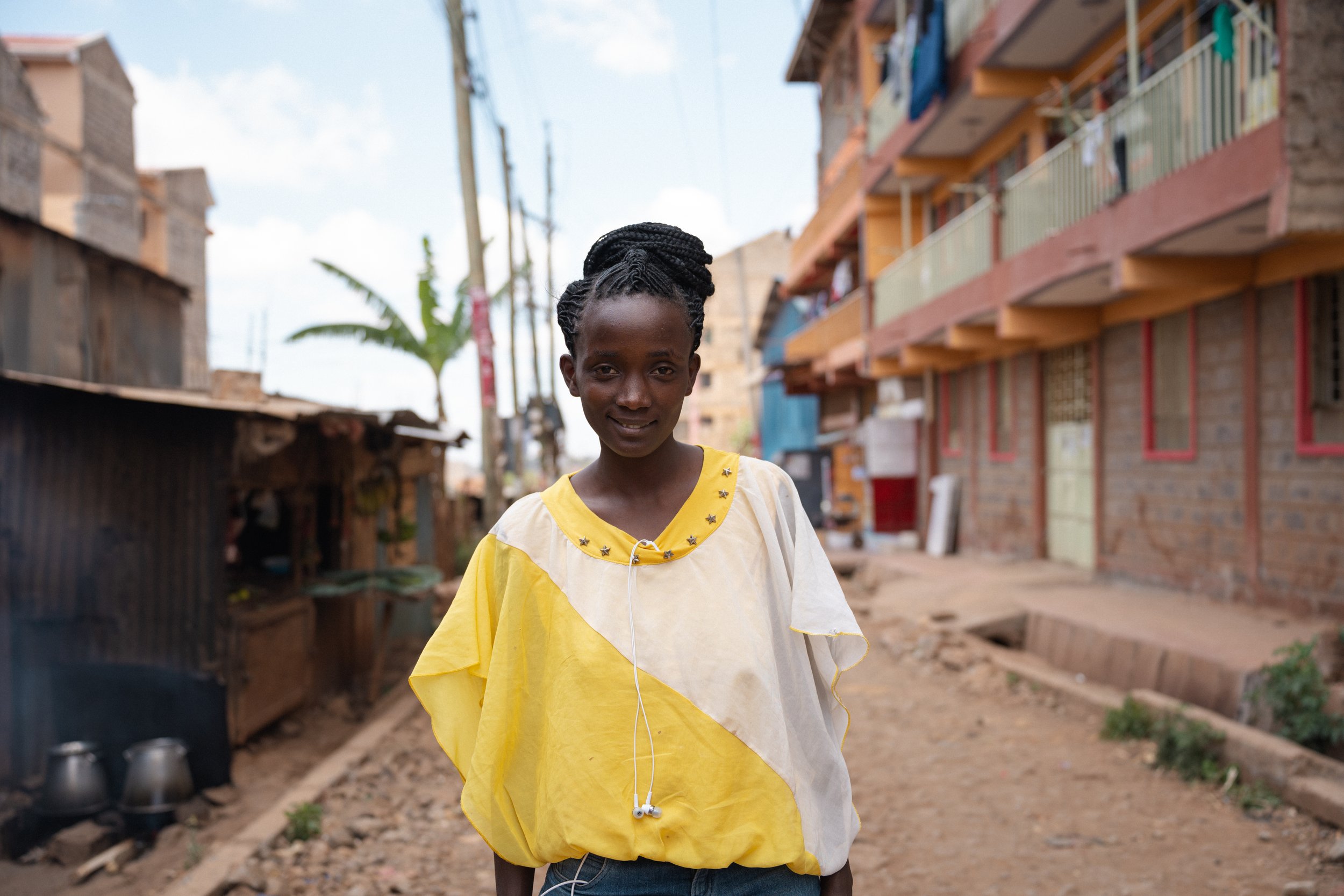
Self-reliance
We help refugees stabilize in the countries to which they have fled so that they can meet their own essential needs.
Refugees want the ability to support themselves and contribute to their communities. For those who can safely stay where they are, we support them on their path from vulnerability to self-reliance and dignity. To end the perpetual reliance on aid, we empower people to stand on their own two feet.

In 2021, RefugePoint made strides toward influencing global policy and practice to advance refugee self-reliance. Through our Urban Refugee Protection Program in Nairobi, Kenya, we also directly assisted thousands of refugees on their self-reliance journeys.
RefugePoint continued to co-chair the Refugee Self-Reliance Initiative (RSRI), launched in 2018 to promote opportunities for refugees around the world to become self-reliant and achieve a better quality of life. The RSRI is now the leading global forum for learning, action, and collaboration on self-reliance. The RSRI, which includes more than 45 organizational partners, advances programming that enables refugees to become self-reliant and gathers data to build an evidence base of best practices.
The COVID-19 pandemic continued to impact our clients and staff in Nairobi, Kenya. Most refugees faced unprecedented challenges in 2021 as purchasing power diminished and spending priorities shifted due to the pandemic. For most of the year, restrictions related to the pandemic also made it difficult for our URPP staff to meet with clients face-to-face. Despite these challenges, we were able to support 1,636 core clients through the URPP and reached 8,080 people via community outreach initiatives.
Other key 2021 highlights related to our self-reliance work include:
-

1,636 Core Clients supported in Nairobi, Kenya
In 2021, our Urban Refugee Protection Program in Nairobi, Kenya, supported 1,636 core clients (those receiving stabilizing services), including assistance with rent, food, non-food items, education, medical care, and counseling. Five hundred fifty-seven clients achieved self-reliance and graduated from the program. We provided rent assistance to 501 clients, food assistance to 1,608 clients, education support to 329 clients, medical care to 1,418 clients, and counseling to 357 clients. We also helped 1,142 refugees register with Kenya’s National Hospital Insurance Fund to access medical insurance—critical on the journey to self-reliance.
-
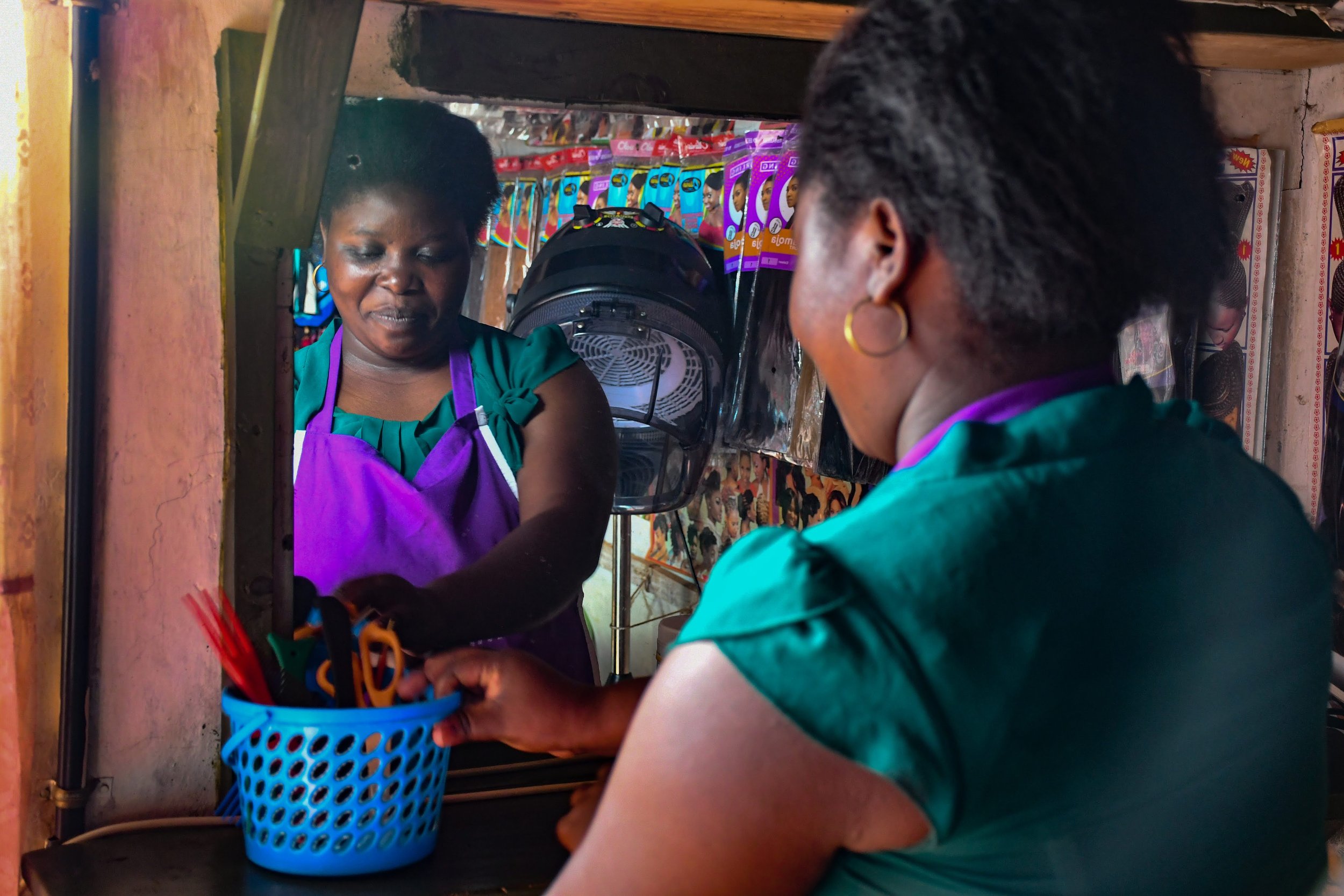
122 client businesses supported in Nairobi, Kenya
Our Urban Refugee Protection Program in Nairobi, Kenya, supported 122 client businesses and provided emergency cash assistance to 175 clients to help offset the impacts of the COVID-19 pandemic.
-

143,967 people reached with self-reliance programming
The Refugee Self-Reliance Initiative made progress toward a joint pledge made at the 2019 Global Refugee Forum. RefugePoint and five partners reached 143,967 refugees, other displaced populations, and host community members in 19 countries with self-reliance programming. Progress towards this pledge was featured in the 2021 Global Refugee Forum Stocktaking report. At the High-Level Officials Meeting in December 2021, the U.S. State Department announced that it would join the pledge.
-

Rapid Growth in the use of the Self-reliance index
In May 2020, the Refugee Self-Reliance Initiative launched the Self-Reliance Index, a tool used to measure the progress of refugee households on their path to self-reliance. In 2021, we saw rapid growth in the network of partners using the tool to measure programmatic impacts on refugee self-reliance. There was also a significant increase in the number of partners sharing data and lessons learned, which helped inform the broader community of stakeholders working to promote self-reliance.
-

We trained 314 PRACTITIONERS from 15 countries
The Refugee Self-Reliance Initiative trained 314 practitioners on the use of the Self-Reliance Index. Practitioners included representatives from 21 international, national and community-based NGOs, UN agencies, and refugee-led organizations operating in 15 countries.
-

The Self-reliance index is being used in 17 countries
A growing network of agencies is using the Self-Reliance Index to track and measure the impact of their programming to improve refugee self-reliance. By the end of 2021, we were supporting 23 agencies in 17 countries to use the SRI to measure and strengthen the impact of their self-reliance programs. The highest rates of SRI application were seen in East Africa / Horn of Africa and Central and South America.
-

Influencing Key Humanitarian Funders
The Self-Reliance Index has also been endorsed for use by several key humanitarian funders. The U.S. State Department Bureau of Population, Refugees and Migration and Lives in Dignity, a newly-launched €24 million funding pool hosted by the EU and UN Office for Service Projects, officially recommended the use of the SRI to grantees to measure the impact of self-reliance programs.
-

Joint statement at the High-Level Officials Meeting
In December, at the High-Level Officials Meeting, the Refugee Self-Reliance Initiative delivered a joint statement on behalf of the entire NGO community, amplifying our collective work to advance self-reliance.
“It is really motivational to see a big organization like RefugePoint recognizing the work of RLOs in the humanitarian space.”
— A representative from Youth Voices Community, a Kenyan Refugee Led Organization serving urban refugees in NairobiDeepening our engagement with community-based organizations
Community-based organizations (CBOs) in Nairobi, Kenya, provide vital services to refugees. These include basic supports (such as food, rent, and clothing); targeted support for women and girls; vocational and computer training; language, literacy, and cultural programs; business and career support; and safe housing for LGBTIQ+ refugees.
In 2021, we deepened our direct engagement and support to CBOs serving refugees in Nairobi, Kenya. Recognizing the critical role that these organizations play as first responders in the community, we listened to, supported, and partnered with a group of CBOs, many of which are refugee-led organizations (RLOs).
Through training, funding, peer-learning sessions, and other support, we expanded CBOs’ access to resources and information to strengthen their programs. To guide our work and priorities, we invited Nairobi-based CBOs to participate in a capacity self-assessment survey. Throughout 2021, RefugePoint facilitated sessions on topics such as mental health, psychosocial support, and counseling. We also facilitated connections between CBOs and key NGO and donor stakeholders.
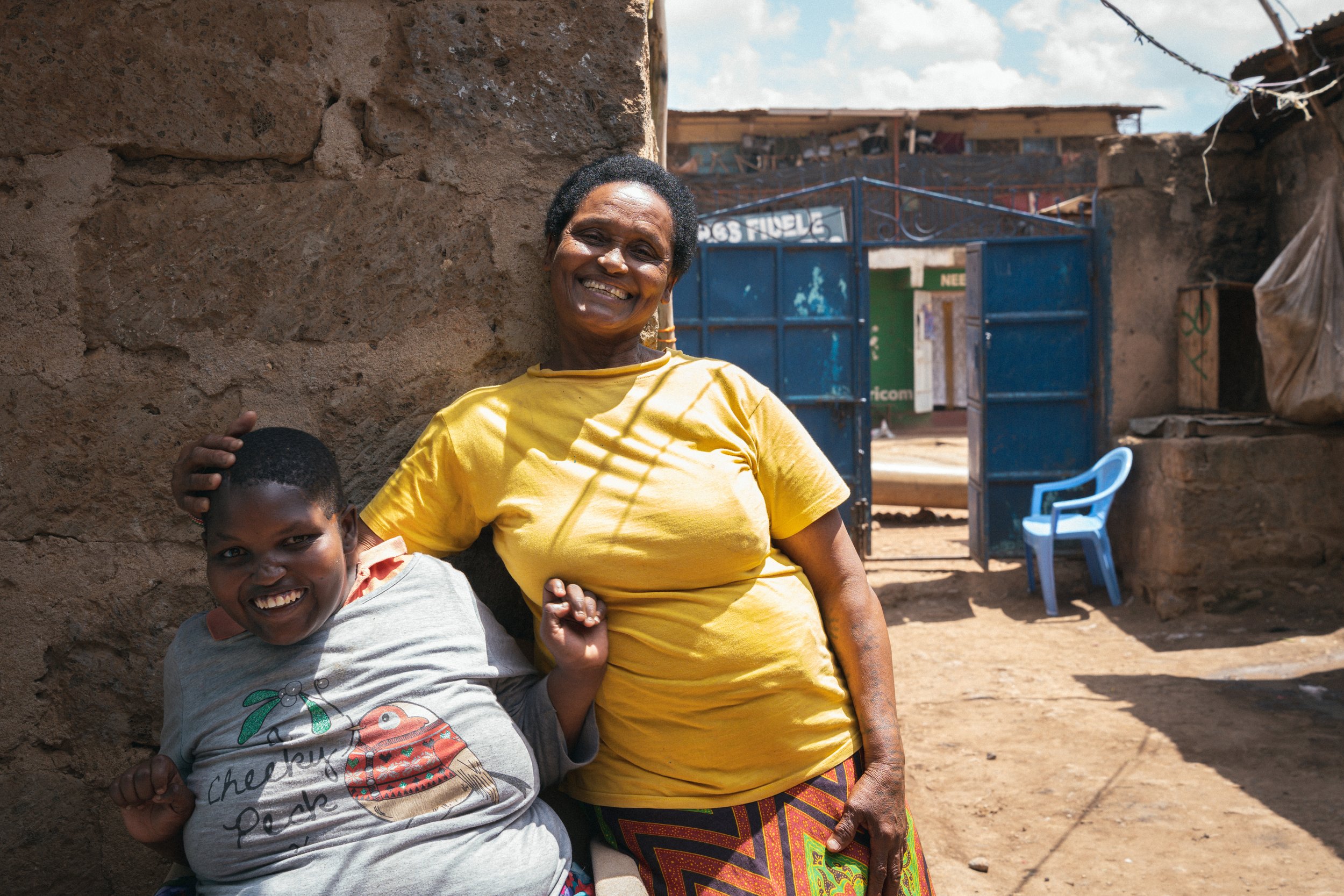
Alemitu and doreen
A journey towards self-reliance.
Alemitu
Prior to 1992, Alemitu was living happily in Jimma, Ethiopia, managing her own restaurant. That year, war forced her to flee from her home. Alemitu spent 12 years in Kakuma Refugee Camp until violence in the camp forced her to flee once again, this time to Nairobi, Kenya.
Today, Alemitu lives in Nairobi with her daughter, Doreen. As a single mother, Alemitu struggled to both work and care for her daughter, who has a disability. RefugePoint provides the family with food, medical, and education support. Our team enrolled Doreen in a special education primary school. RefugePoint covers her school fees, uniforms, and transportation to and from school. “Now, instead of staying home, my daughter can go to school, and I can go to work,” Alemitu told us.
RefugePoint’s support has helped Alemitu start her own business making and selling soap. After sourcing the ingredients locally, Alemitu makes small batches of soap in her home, allowing her to care for her daughter while she works. Alemitu then sells the soap in her local community, bringing her one step closer to self-reliance.
Despite the incredible challenges she’s faced, Alemitu has an unwavering spirit and is hopeful for the future for both her daughter and herself. Read Alemitu’s full story.

Resettlement & other pathways to safety
We help refugees permanently relocate to safe countries where they can rebuild their lives.
Unfortunately, many refugees can’t go home and can’t safely stay in the country to which they have fled. We help these people relocate to a safe, new country so that they can begin to rebuild their lives. In addition to helping refugees through our foundational resettlement work, RefugePoint is helping refugees to relocate through other pathways to safety, including labor mobility, family reunion, and education.

2021 was, in so many ways, a pivotal year for the global resettlement system and for RefugePoint’s programs in particular.
In addition to our resettlement work, RefugePoint continued to build and strengthen other opportunities for safety, including labor mobility, family reunification, and education pathways. Recognizing the importance of NGOs uniting around common goals and sharing successes, we co-led a convening of senior resettlement executives to expand opportunities for refugees to access resettlement and other pathways to safety.
With our growing reputation as one of the very few NGOs with operational experience in multiple pathways from so many countries of asylum to so many destination countries, we are a leading voice in major international policy conversations. For example, we were the only NGO given the opportunity to speak at the session on resettlement and other pathways at UNHCRs High-Level Officials Meeting in December, the single most significant refugee-related policy event of the year.
Martin Anderson, RefugePoint’s Director of International Programs, spoke about our commitment to expanding access to resettlement and other pathways to safety and the importance of these pathways in collectively reaching more refugees. As the international community develops new pathways to safety for refugees, we must ensure that they do not compete with or undermine the traditional resettlement system, so that resettlement slots continue to be available to protect the most at-risk refugees.
The COVID-19 pandemic continued to drive needs and influence opportunities to respond. Adaptive management practices allowed us to successfully record a number of important achievements:
-

We Assisted 12,088 refugees to access pathways to safety
In 2021, our staff assisted 12,088 individuals to access pathways to safety, including 8,250 refugees whom we helped to access resettlement and 1,044 refugees whom we helped to access other pathways to safety. Though COVID-19 continued to impede resettlement processing, we saw vast improvements compared to 2020 (when we were only able to assist 3,600 refugees access resettlement).
-

WE Assisted refugees in 119 locations in 30 countries
In 2021, our team helped refugees in 119 locations from 30 countries to access resettlement or another pathway to safety. Since our founding in 2005, RefugePoint has assisted refugees in 250 locations in 52 countries.
-

Launching the Sponsor Circle Program for Afghans
In August, the U.S. withdrawal from Afghanistan led to the evacuation of tens of thousands of Afghan refugees to sites around the world and to military bases in the U.S. We joined the urgent response by sending staff to support the evacuees in the U.S. and began working with partners to design and implement the new Sponsor Circle Program for Afghans. The program, which allows communities in the U.S. to welcome displaced Afghans, represents one of the most significant innovation in U.S. refugee resettlement programming since the United States Refugee Admissions Program (USRAP) was established in 1980. Sasha Chanoff, RefugePoint’s CEO, spoke with NBC News NOW and CBS about the Sponsor Circle Program. The program is now seen as a model to support other refugee populations to resettle to the US.
-

BUILDING NEW PATHWAYS TO SAFETY
Drawing on our experience in identifying refugees around the world for resettlement, RefugePoint continued to build other related pathways to safety in 2021. These include our labor mobility project, a first of its kind program that helps refugees in Kenya relocate to Canada, and our family reunification program, which reunites unaccompanied children with their parents and other family members. In 2021, a RefugePoint staff member served as the Coordinator for the Family Reunification Network (FRUN), the first global platform devoted to family reunification for refugees. In addition, we helped refugees to access education scholarships and other visas that enable them to relocate to a safe new country.
-

WE'VE HELPED MORE THAN 100,000 REFUGEES
This year we achieved a significant milestone. Since our founding in 2005, we have directly helped 104,767 individuals to access resettlement and other pathways to relocate to safety. Through training, global policymaking, and other activities, we've contributed to a global system that has resettled 1.5 million refugees in the past 16 years.
-

Preserving the Humanitarian Nature of Resettlement
In September, we released a report entitled Preserving the Humanitarian Nature of Resettlement, in which we identified major gaps in the global resettlement system and advocated for systemic changes to ensure equitable access to resettlement. Our findings were used in policy conversations throughout the year to help build more equitable resettlement efforts globally.
-
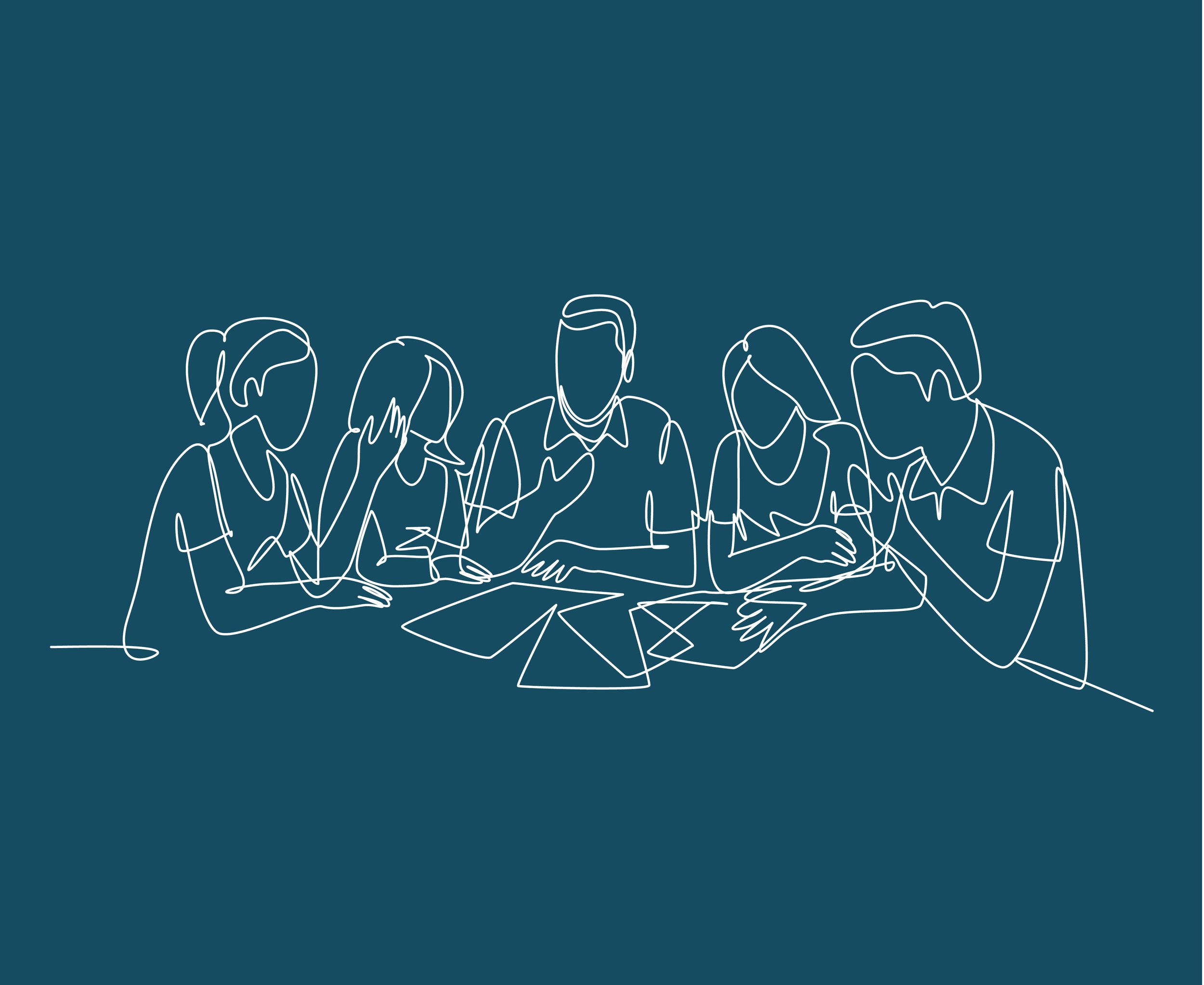
we trained 2,747 individuals
In 2021, we trained 2,747 partner agency staff, including NGOs, UN, and government officials, to help refugees access resettlement and other pathways to safety.
-

GEOGRAPHIC GROWTH MILESTONE: Reaching refugees from Central and Latin America
We deployed Resettlement Experts to help refugees from Latin America to resettle to the U.S. This included sending an Expert to Guatemala, where they supported the identification and referral of individuals in need of resettlement, often through the Protection Transfer Agreement (PTA) with the United States. Another Expert was deployed to UNHCR Washington D.C. to assist with the resettlement processing of mainly Venezuelan refugees in the Dominican Republic. We expanded because of the great need in the region and our unique expertise in identifying refugees.

In June, our first three economic mobility clients finally traveled from Kenya to their new jobs and communities in Canada.
“I feel proud of myself, and I feel like I have earned this opportunity. The employers have seen the value of my skills and what I bring to the table.”
— Bahati Ernestine Hategekimana, a refugee who relocated from Nairobi, Kenya, to Nova Scotia through the EMPPThe first Economic Mobility candidates traveled to Canada
RefugePoint has been working with UNHCR Canada, Talent Beyond Boundaries (TBB), and Immigration, Refugees and Citizenship Canada (IRCC) to expand the Economic Mobility Pathways Project (EMPP). The EMPP connects refugees from East, Horn, and Central Africa with jobs in Canada. In 2018, RefugePoint staff began to identify and interview refugees in Nairobi and in refugee camps in Kenya who could be eligible for this new pathway—supporting candidates through the entire immigration process.
Bahati Ernestine Hategekimana is a refugee who was connected to a new job in Nova Scotia through the EMPP and relocated there in June 2021. In 1994, Bahati’s family was forced to flee their home in Rwanda due to violence and civil conflict. They spent two years in a refugee camp in Congo before leaving for Kenya in 1996 because of insecurity. As the years passed without resettlement opportunities, Bahati’s parents decided that their top priority was to ensure that Bahati and her siblings received an education. Bahati excelled academically and graduated from Moi University with a Bachelor of Science Degree in Nursing. In August 2019, 23 years after arriving in Kenya, Bahati applied for and was offered a position as a Continuing Care Assistant in Nova Scotia, Canada, through the EMPP.
After living a combined 60 years in exile, in 2021, Bahati and two other highly skilled nurses became the first group of refugees to relocate from Nairobi, Kenya, to safe, permanent new homes in Pictou County, Nova Scotia, through the EMPP. You can read more about Bahati’s journey here.

Our supporters
RefugePoint is very grateful to all of our supporters who generously invested in our mission in 2021.
$50,000+
5Together Foundation
AJG Foundation
Anne Peretz
Anonymous
Focusing Philanthropy
G. Barrie Landry
IKEA Foundation
Landry Family Foundation
Noubar & Anna Afeyan Foundation
Patrick J. McGovern Foundation
Sidhu Singh Family Foundation
The Charitable Foundation
The Chirag Foundation
The ELMA Relief Fund
The Isabel Allende Foundation
The Shapiro Foundation
UNHCR
$10,000– $49,999
Alchemy Foundation
Arlene Foundation
Deborah and Gregory Brill
Dr. Abby Shuman and Mr. Dean Eaton
Dunn Family Charitable Foundation
Edward Roche and Denise Nicoli-Roche
Edward Stern and Stephanie Rein Charitable Fund
Elizabeth and Oliver Stanton Foundation
English Family Gift Fund
Gussack-Stein Charitable Fund
Henry Family Charitable Fund
James Balkcom
Jill Block and Wade Rubinstein
John Howard
Josh and Angela Schawbel Foundation
Lambert Family Charitable Trust
Marcy Gringlas & Joel Greenberg
Matt and Lisa Chanoff
May & Walt Family Charitable Fund
MCJ Amelior Foundation
Paul Bechtner Foundation
Select Equity Group Foundation
Stephanie Dodson Cornell and James Cornell Family Foundation
Susan Lowenberg and Joyce Newstat
The Apatow-Mann Family Foundation, Inc.
The Ettinger Foundation
The Morrison & Foerster Foundation
The Nommontu Foundation
The Susan Sarandon Charitable Foundation
The William H. Donner Foundation, Inc.
$1,000–$9,999
Adam Janovic
Andra Ehrenkranz
Andrea Guttag
Anna and Dean Backer
Anonymous
Ansara Family Fund
Ben and Karen Sherwood
Carl and Suzie Byers
Catholic Charities USA
Chris Landry
Christine DeChristopher
Christopher Siege
Christopher Trost
Dan Gould and Marina Kim
Daniel E. Hogan Jr. Charitable Foundation
Darren Manelski
Deborah Douglas
Diane Hidey
Donald Estberg
Downtown Investors, LLC
Dretler Family Fund
Elizabeth Floor
Evan and Florence Janovic
FThree Foundation
George Lehner and Diana Day
Gillian Sorensen
Howard and Geraldine Polinger Family Foundation
Jamini Vincent Davies TTEE
Janine and Marshall Vanderburg
John and Olga Guttag
Jonathan Bamel
Joyce and William Fletcher
Katherine Collins Fund
Kenneth O'Connor
Lauren Dias
Lori Barra
Lynne and Jesse Lipcon
Marlaina and James Recknagel
(Continued on the next column)
$1,000–$9,999
(Continued from the previous column)
Mary M. Wendell
Marz and Manijeh Attar
Matthew Glasser
Michael Douvadjian
Michael Guttag
Miranda Kaiser
Mr. and Mrs. Colin Macdonald
Mr. David N. Campbell and Mrs. Gay W. Campbell
Nancy and Rod Van Sciver
Nancy Ettenheim
Nicole Rowe
Pucker Family Fund
Rachel and Michael Roufa
Richard Wayne
Richard Weaver
Robert Kleiner
Ronak Patel
Roswitha and AJ Agarwal
Sasha Chanoff
Seed the Dream Foundation
Shaila Chowdhury
Shoshana Grossman-Crist
Sidney Schwartzberg
Simon Lipskar
Stacy and Dan Lennon
T. Craig Murphy
Ted and Mary Wendell
The Civie and Earl Pertnoy Family Foundation
The Henry E. Niles Foundation
The John Fisk Fund
The Matthew & Sarah Forti Price Charitable Fund
The Mirnahill Foundation
The Northern Trust Company
The William Jelin Foundation
Tine Ward
Townsend Belisle
William Lincoln
Wolfson Family Foundation Inc.
Monthly Sustainers
Ann M Lees
Courtney Doyle
James E Lassiter
Jenny Bonham-Carter
Jozee KatKen Pruitt
Kim Norbert
Mark E Swartz
Matthew Engler
Mihai Nia
Paul Onimbo
Peter Shirley
Sofie Vandeputte
Yerra Sugarman

Board of Directors
A huge thanks to our U.S. and Kenya Board of Directors!
WILLIAM P. MAYER: Partner, Goodwin Procter (USA)
FARAH MOHAMED: Chief Operating Officer, Canada’s Forest Trust (USA)
DR. SAMORA OTIENO: MD (Kenya and USA)
EDWARD SHAPIRO: Trustee For The Shapiro Foundation And President Of Shapiro Investment Company, LLC (USA)
COLLEEN TIGHE: Associate Director, Processing Operations, USCCB/Migration and Refugee Services (Kenya)
EDITH TYE: Director Of Infection Control and Prevention, NexCare WellBridge Senior Living (USA)
SANDRA UWIRINGIYIMANA: Co-Founder And Director Of Partnerships & Communications, Jimbere Fund (USA)
SHEIKHA ALI: International Organization For Migration (Kenya)
SASHA CHANOFF: Founder and CEO, RefugePoint (USA)
STEPHANIE DODSON: Venture Partner, Draper Richards Kaplan (USA)
DANIEL DRAPER (Treasurer): CPA, President, Draper Tax Consulting (USA)
ELIZABETH FERRIS: Research Professor, Institute For The Study Of International Migration Georgetown University (USA)
NASRA ISMAIL: Senior Director - Global Strategy and Operations, GivingTuesday (USA)
G. BARRIE LANDRY: Trustee, Landry Family Foundation (USA)
GEORGE LEHNER (Chair): Partner, Pepper Hamilton LLP (USA)
DR. M’IMUNYA J. MACHOKI: MD (Kenya)

Financials







